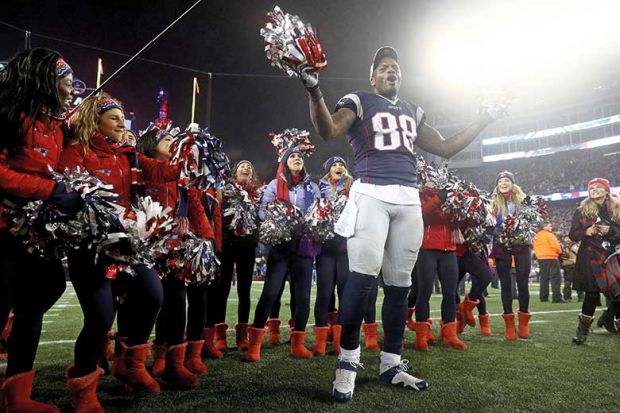US business schools are tapping a glamorous niche market, teaming up with major sports leagues to offer degrees and other qualifications to athletes anticipating their post-playing careers.
Several institutions, including Harvard University, have moved this year to expand the growing number of business programmes designed specifically for players from top-level American football and basketball leagues.
The concept gives the colleges both revenue and celebrity buzz, leaving even Harvard instructors giddy in the presence of stars such as Kyrie Irving of the NBA and Martellus Bennett of the NFL.
It’s also a boon for the athletes, who typically are paid millions of dollars while they play yet often find themselves bankrupt just a few years after retiring.
But the universities involved must overcome the scepticism of some staff whose attitudes towards sports players on campus are often shaped by scandals associated with college athletics, said Michael Lythcott, a leading investor and advocate for the genre.
“There’s a real negative bias on the part of faculty, and in most cases the administration, to teach these guys,” said Mr Lythcott, who has played key roles in creating business education programmes for athletes on several campuses.
Along with Harvard, those adding business courses for athletes this year include Columbia and Fordham universities. Harvard was an original participant more than a decade ago, and then saw its programme move to the University of Pennsylvania. Other business schools that cater to professional athletes include those at George Washington University, the University of Miami, Dartmouth College and Indiana University.
Structures vary, although the leagues or their player associations often provide much of the financing for the athletes. League benefits also often cover the cost of finishing bachelor’s degrees that scholarship students abandoned for their professional sports careers.
Even the concept of a tuition bill can be challenging for those who previously attended college on scholarships, Mr Lythcott said. “It’s very difficult to get these programmes to sustain,” he said.
Many of the business school programmes offer only certificates, Mr Lythcott said. Business schools looking to be helpful should consider more graduate degree opportunities for the athletes, he continued, because of the increased rigour and correspondingly higher value to the student.
And the athletes often can handle the demands, despite common stereotypes depicting them as unenthusiastic and ill-prepared scholars, Mr Lythcott said. Many scholarship athletes, however, received relatively poor educations during their undergraduate years as institutions allowed them to concentrate on their sport, Mr Lythcott said. Academic transcripts are not always good indicators of substandard undergraduate experiences, as “there’s so much manipulation that happens”, he said.
Some athletes do arrive at business programmes with undergraduate transcripts suggesting poor performance, yet they “come into class doing algebra in their heads”, Mr Lythcott said. “And then there are people from great schools and [with] great scores who can’t count.”
Yet overall, from his experience at several institutions, those professional athletes who arrive at business schools are at a point in their lives where they understand the stakes. “I’ve never had a faculty member complain about the quality of the students at the graduate level,” Mr Lythcott said.
Register to continue
Why register?
- Registration is free and only takes a moment
- Once registered, you can read 3 articles a month
- Sign up for our newsletter
Subscribe
Or subscribe for unlimited access to:
- Unlimited access to news, views, insights & reviews
- Digital editions
- Digital access to THE’s university and college rankings analysis
Already registered or a current subscriber? Login





